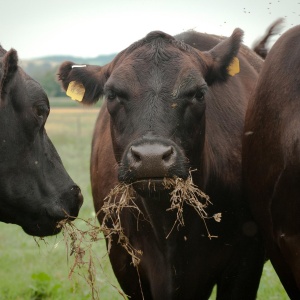
This paper presents the findings of a food systems model that considers how specific agronomic characteristics of organic agriculture could be harnessed so as to enable it to play a greater role in sustainable food systems.
Reducing emissions per kilogram output is important for reducing greenhouse gas (GHG) emissions in agriculture. However, such efficiency and footprint indicators do not tell the full story. This is because
- climate change mitigation goals are aggregate goals: it is necessary to reduce total emissions, not only emissions per output; and
- climate change is one challenge among many others of equal importance – such as the disruption of the nitrogen cycle or increasing pesticide pollution. Action on climate change should not be done at the expense of acting on these other challenges.
Thus, focusing on single production practices and their emission intensity is not enough to achieve climate change mitigation in agriculture nor does it necessarily help further broader sustainability goals. We need to adopt a food systems perspective.
The authors of this paper consider these goals in relation to organic agriculture and grass-fed ruminants. Organic agriculture has advantages for example regarding soil fertility and environmental impacts such as nitrogen surplus and eco-toxicity from pesticide use, but it generally has lower yields. Grass-fed ruminant production avoids competition for cropland to produce feed or food, but greenhouse gas emissions per kilogram product are higher than for animals that eat concentrate feed. As such, when assessing production on the base of emissions per kg product, these systems tend to be judged negatively.
In a recent publication in Nature Communications, Muller et al. 2017, focus on organic agriculture and draw upon earlier work by Schader et al. 2015 on livestock and feed competing foodstuffs (summarised by the FCRN here). The authors analyse how these systems can nevertheless play a key role in sustainable food systems that achieve improvements along a number of sustainability indicators including lower aggregate greenhouse gas emissions, lower land use, significant reductions in nitrogen surplus or eco-toxicity. They emphasise that the key lies in also addressing the consumption side of the equation, by reducing the quantity of animal products in our diets as well as the quantities of food lost and wasted. Action on consumption provides room for production systems with many environmental benefits albeit showing lower yields or higher emission intensities per kilogram product.
They conclude that to achieve our Paris climate commitments, we should not focus on just on production practices with low emissions intensities only, but on combining shifts in production with actions focused on consumption.
Abstract
Organic agriculture is proposed as a promising approach to achieving sustainable food systems, but its feasibility is also contested. We use a food systems model that addresses agronomic characteristics of organic agriculture to analyse the role that organic agriculture could play in sustainable food systems. Here we show, that a 100% conversion to organic agriculture needs more land than conventional agriculture but reduces N-surplus and pesticide use. However, in combination with reductions of food wastage and food-competing feed from arable land, with correspondingly reduced production and consumption of animal products, land use under organic agriculture remains below the reference scenario. Other indicators such as greenhouse gas emissions also improve, but adequate nitrogen supply is challenging. Besides focusing on production, sustainable food systems need to address waste, crop-grass-livestock interdependencies and human consumption. None of the corresponding strategies needs full implementation and their combined partial implementation delivers a more sustainable food future.
Reference
Muller, A., Schader, C., El-Hage Scialabba, N., Brüggemann, J., Isensee, A., Erb, K.-H., Smith, P., Klocke, K., Leiber, F., Stolze, M. and Niggli, U., 2017, Strategies for feeding the world more sustainably with organic agriculture, Nature Communications 8:1290 | DOI: 10.1038/s41467-017-01410-w .
You can find the article here (open access).
For other work exploring the need to adopt different approaches to the concept of efficiency, see the FCRN report Lean, green, mean, obscene…? What is efficiency and is it sustainable? You may also be interested in this blog by FCRN member Elin Röös (as well as the papers she cites) and this paper by Elin Röös, the FCRN’s director Tara Garnett and a team of other researchers (see also the references at the end of the entry).







Post a new comment »